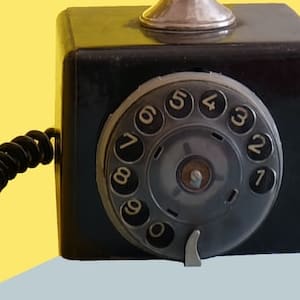tip the wink: Idiom Meaning and Origin
What does ‘tip the wink’ mean?
Tip the wink means to give a secret signal or hint to someone, usually in a sly or discreet manner.

Idiom Explorer
The idiom "under one's hat" means to keep something a secret or to refrain from sharing information with others.
The idiom "two thumbs up" means to give a positive or favorable review or approval of something. It is often used to indicate strong support or enthusiasm for a person, idea, or product.
The idiom "twinkly-eyed" refers to someone whose eyes shine or sparkle with amusement, joy, or mischief.
The idiom "twinkling of an eye" refers to the extremely rapid moment or passing of time, often used to indicate that something happens very quickly or instantaneously.
The idiom "twenty winks" means to take a short nap or rest for a brief period of time, typically around 20 minutes, often to rejuvenate and regain energy.
The idiom "turn a trick" refers to the act of performing a task or solving a problem, often in a clever or skillful way. It can also have a negative connotation, implying the use of deception or manipulation to achieve a desired outcome.
The idiom "trick up one's sleeve" means to have a hidden plan or strategy that can be used to gain an advantage or surprise others.
The idiom "tongue-in-cheek" means to say something in a humorous or sarcastic way, not to be taken seriously.
The idiom "tip the scales" means to have a decisive or significant influence on a situation or outcome, often by providing an advantage or causing a change in balance.
The idiom "tip the scale" means to have a decisive influence or to cause a significant change in a situation or outcome. It suggests the idea of adding weight to one side of a balance scale, disrupting the equilibrium.
Cracking the Code
The idiom "tip the wink" has several possible meanings, but the most common interpretation is to give someone a secret signal or hint. The origin of this idiom is somewhat uncertain, but it appears to have originated in the late 19th century. The phrase is primarily used in British English, although it may be understood by some American English speakers as well. The meaning of "tip the wink" can vary depending on context, but it is generally used to indicate some form of covert communication or sharing of information.
One possible explanation for the origin of "tip the wink" is that it may have originated from the practice of tipping one's hat as a form of polite acknowledgment. In this sense, "tip" refers to the act of making a small gesture, while "wink" suggests a subtle, nonverbal communication. This interpretation would suggest that "tip the wink" originally meant to discreetly signal someone without explicitly stating one's intentions.
Another possible origin of the idiom is related to the game of poker. The term "tip" in poker refers to giving a tip or clue about one's hand or strategy to another player. Similarly, a "wink" can be seen as a subtle form of communication or hint. Therefore, "tip the wink" could have been derived from the poker world, where players might give each other small signals or cues to indicate their intentions or bluffing strategies.
The idiom "tip the wink" is often used in situations where secrecy or discretion is desired. It can be applied to various scenarios, such as sharing confidential information, giving a subtle warning, or arranging a covert plan. For example, someone might "tip the wink" to a friend to let them know that a particular conversation should be kept a secret, or a spy might "tip the wink" to their handler to indicate the presence of a hidden threat.
The idiom "nudge nudge wink wink" is related to "tip the wink" in that both involve subtle communication or hints. "Nudge nudge wink wink" is often used as a humorous or suggestive way of implying something without explicitly stating it. The phrase is commonly used in a playful or flirtatious manner, typically when making an innuendo or insinuation. It can be seen as a more lighthearted or comical version of "tip the wink," where the intention is to imply something indirectly rather than conveying confidential or secret information.
Similarly, the idiom "tip off" is related to "tip the wink" in that both involve giving someone a hint or clue. However, "tip off" is typically used in the context of warning or informing someone about a potential danger or upcoming event. It suggests a more proactive form of communication, where the intention is to provide advance notice or insider information. In contrast, "tip the wink" is more focused on discreetly sharing information or signaling without explicitly stating one's intentions.
The idiom "tip one's hat" is another related expression that shares similarities with "tip the wink." "Tip one's hat" is a gesture of acknowledgement or respect, where one raises their hat as a sign of politeness or recognition. Similarly, "tip the wink" can be seen as a subtle form of acknowledgment or recognition, where one discreetly signals their awareness or understanding. Both expressions involve nonverbal communication and convey a sense of respect or understanding without the need for explicit words.
While the precise origin of the idiom "tip the wink" remains unclear, its usage and meaning have evolved over time. The idiom is still in use today, although it may be less familiar to younger generations or those outside of the United Kingdom. Nevertheless, it continues to carry connotations of secrecy, nonverbal communication, and discreet sharing of information. The idiom "tip the wink" serves as a reminder of the rich and diverse nature of the English language, with its many idiomatic expressions that convey nuanced meanings and cultural references.
Example usage
Examples of how the idiom "tip the wink" can be used in a sentence:
- He tipped me the wink that the boss was planning to promote me.
- She tipped the wink to her friends about the surprise party.
- The informant tipped the wink to the police about the impending robbery.
More "Communication" idioms



